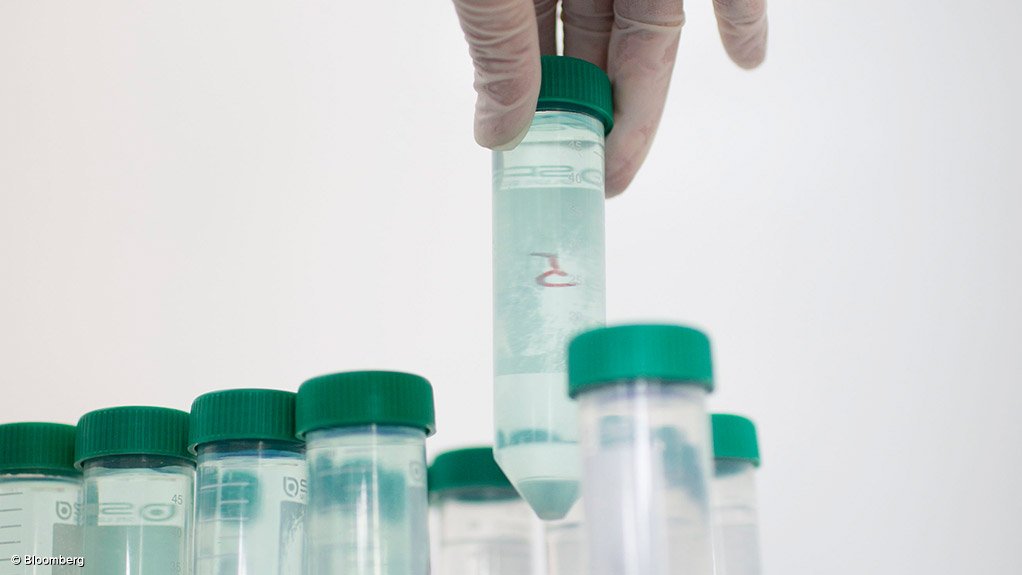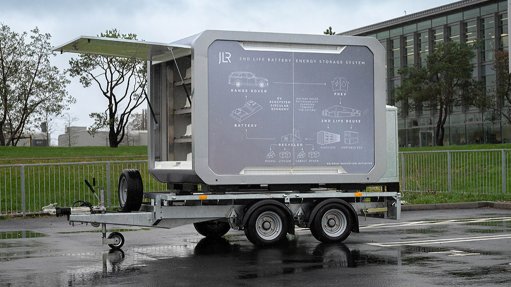Study highlights need for collaboration, centralisation in S African biosecurity field
A recent study into the shortcomings and strengths of legislation and practices relating to biosafety and biosecurity at a laboratory level in South Africa has pointed to the need for greater collaboration between research institutions, as well as for a centralised database of both public and commercial laboratories in the country, which should allow greater research-based cooperation and expand the existing pool of knowledge in this field.
Presenting the findings of the Academy of Science of South Africa’s ‘State of Biosafety and Biosecurity in South Africa’ report to the scientific community on Thursday, report panelist Dr Shadrack Moephuli said it was observed at the outset of the study that no comprehensive database of public and commercial research and diagnostic facilities existed in South Africa, prompting the compilation of such as database by the report panel.
“This database of laboratories can be used as a resource by the departments of Health (DoH), Agriculture, Forestry and Fisheries (DAFF) and Science and Technology (DST).
“It can be a determination of national research and diagnostic capacity and an assessment of gaps in the particular areas, particularly in relation to diagnostic capacity,” he commented.
The ten-person research panel recommended that the database compiled during this survey be considered a “national asset” and be continuously developed and maintained by the DST.
The study, meanwhile, also found that, while there were “multiple” South African laws and regulations governing the prevention, detection, identification and control of disease owing to infectious agents, these were administered by five different government departments with the absence of a single, regularly updated and publicly accessible list of agents.
The panel recommended that the DoH, DAFF and DST, along with other relevant agencies, collectively determine whether such a comprehensive list would be a helpful tool for policymakers to cross-reference during the development of regulations; and, if so, to undertake the development and maintenance of such a list.
In terms of scientific “openness”, Moephuli argued that, while transparency was regarded by respondents as important for scientific progress, the panel observed several “legitimate” reasons for researchers remaining somewhat reluctant to share their research or findings.
“Reasons may range from the need to protect intellectual property to the need to protect the identity of research participants. The survey indicates that research scientists in South Africa are supported and encouraged to collaborate less often with researchers from other institutions than they are with colleagues from their own institutions.
“Since most respondents were from research institutions receiving public funds, the finding that only slightly more than half of the respondents felt that collaboration with colleagues outside of their institution was routinely facilitated or encouraged suggests that such collaboration is not considered a priority and support for such collaboration could be increased,” he noted.
The panel recommended that the National Research Foundation (NRF) and the DST encourage universities and research institutions in South Africa to publish details of their research projects and the funders thereof in the interests of accountability and transparency.
Observing trends in the education of biosafety and biosecurity researchers, the study found that the training of specialists did not routinely include issues relating to scientific misconduct, such as falsification, fabrication and plagiarism.
Moreover, it was found that biosafety training was not routine for staff working in laboratories, nor was a test of competence routinely required.
The panel recommended that the NRF and the Department of Higher Education and Training consider means to ensure the inclusion of research ethics training in the training of all life scientists in South Africa.
“Such training is essential to ensure the integrity of science in South Africa.
“We further recommend that the DoH consider drafting regulations to require that relevant laboratory staff undergo biosafety training that includes an assessment of competence,” Moephuli argued.
The study also pointed to a low level of awareness among life scientists about national and international conventions, laws and regulations related to their research, while assessments of the biosafety and biosecurity risk associated with research activities were not routinely conducted.
The panel recommended that institutional research ethics committees require evidence of a contaminant assessment having taken place before ethical approval was granted for research, including research not involving human and animal subjects.
Moreover, no ethical guidelines had been formulated or published specifically for life sciences that did not entail research on humans or animals.
Noting that the Research Guidelines of the National Heath Research Ethics Committee were currently being revised, Moephuli appealed to the committee to take the findings of the study into consideration in the process of revising the research guidelines.
“It is also recommended that the funding agencies, such as the NRF, take ownership of addressing the more general research guidelines for all life science research.
“We propose that every research institution undertaking life science research consider developing and applying a code of conduct for researchers and recommend that the training of life scientists should include a comprehensive ethics component and reference to all relevant national and international laws, regulations and conventions,” he stated.
Welcoming the findings of the report, DST technology innovation deputy director general Mmboneni Muofhe committed to incorporating the recommendations of the report into departmental strategies and policies that were currently under review or under development.
“We need some house rules in place to be successful and we need to make sure that biosecurity and ethics are up to standard and this report highlights some of these things.
“When we went through the recommendations, we assumed that some of these things were in place and we were embarrassed when we realised that these things actually aren’t in place,” he conceded.
He further committed to investigating the incentives currently in place to encourage collaboration between research institutions, as well as the publishing of research results.
“Our incentive schemes need to encourage the behaviour that we want,” he said.
The DoH, meanwhile, noted that the report had come at an “opportune” time, as the department was currently revising and updating the list of biosecurity and biosafety facilities in the country.
“When it comes to policy [in this field], we are the primary policymaker and we acknowledge that we need to update policy and address the gaps,” noted the department’s Lineo Octopi.
Comments
Press Office
Announcements
What's On
Subscribe to improve your user experience...
Option 1 (equivalent of R125 a month):
Receive a weekly copy of Creamer Media's Engineering News & Mining Weekly magazine
(print copy for those in South Africa and e-magazine for those outside of South Africa)
Receive daily email newsletters
Access to full search results
Access archive of magazine back copies
Access to Projects in Progress
Access to ONE Research Report of your choice in PDF format
Option 2 (equivalent of R375 a month):
All benefits from Option 1
PLUS
Access to Creamer Media's Research Channel Africa for ALL Research Reports, in PDF format, on various industrial and mining sectors
including Electricity; Water; Energy Transition; Hydrogen; Roads, Rail and Ports; Coal; Gold; Platinum; Battery Metals; etc.
Already a subscriber?
Forgotten your password?
Receive weekly copy of Creamer Media's Engineering News & Mining Weekly magazine (print copy for those in South Africa and e-magazine for those outside of South Africa)
➕
Recieve daily email newsletters
➕
Access to full search results
➕
Access archive of magazine back copies
➕
Access to Projects in Progress
➕
Access to ONE Research Report of your choice in PDF format
RESEARCH CHANNEL AFRICA
R4500 (equivalent of R375 a month)
SUBSCRIBEAll benefits from Option 1
➕
Access to Creamer Media's Research Channel Africa for ALL Research Reports on various industrial and mining sectors, in PDF format, including on:
Electricity
➕
Water
➕
Energy Transition
➕
Hydrogen
➕
Roads, Rail and Ports
➕
Coal
➕
Gold
➕
Platinum
➕
Battery Metals
➕
etc.
Receive all benefits from Option 1 or Option 2 delivered to numerous people at your company
➕
Multiple User names and Passwords for simultaneous log-ins
➕
Intranet integration access to all in your organisation





















